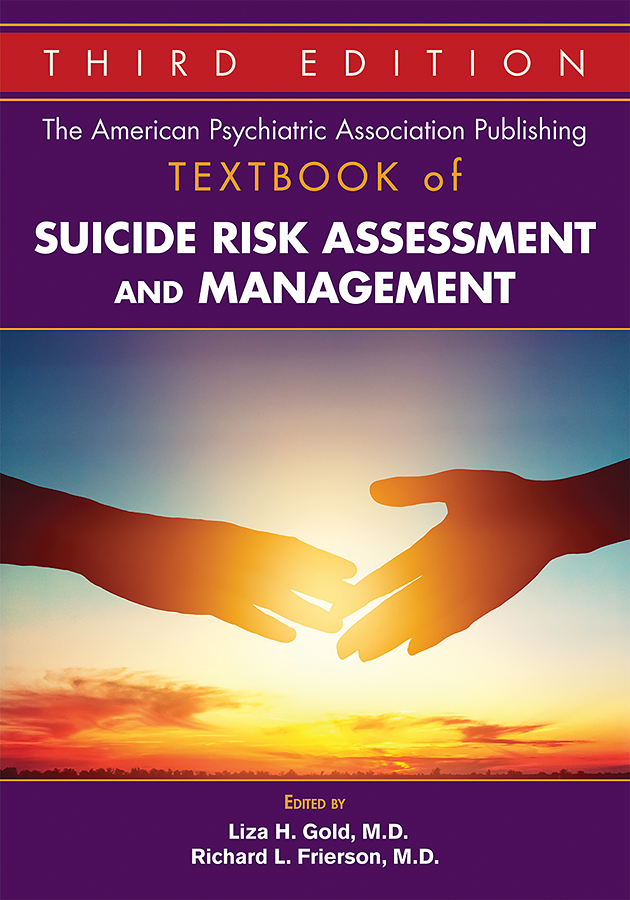Chapter 17.Civil Commitment
Sections
Excerpt
Most patients with suicidal ideation and behavior will be treated on an outpatient basis. Nevertheless, patients at high risk of death from suicide may require inpatient hospitalization to immediately mitigate acute risk. A voluntary hospitalization is one in which a competent patient agrees to be admitted for inpatient treatment. If a patient is at high risk of death from suicide and refuses to consider inpatient treatment, psychiatrists may need to initiate an involuntary admission process—that is, a civil commitment. All states have civil commitment statutes that require the individual to be a danger to him- or herself or others as a result of mental illness in order to meet the criteria for involuntary hospitalization (Treatment Advocacy Center 2014). A majority of states also allow civil commitment of persons with mental illness who demonstrate grave disability or lack of decisional capacity (Treatment Advocacy Center 2014). This chapter reviews the issues that arise when considering and referring a patient for civil commitment to decrease the risk of death from suicide.
Access content
To read the fulltext, please use one of the options below to sign in or purchase access.- Personal login
- Institutional Login
- Sign in via OpenAthens
- Register for access
-
Please login/register if you wish to pair your device and check access availability.
Not a subscriber?
PsychiatryOnline subscription options offer access to the DSM-5 library, books, journals, CME, and patient resources. This all-in-one virtual library provides psychiatrists and mental health professionals with key resources for diagnosis, treatment, research, and professional development.
Need more help? PsychiatryOnline Customer Service may be reached by emailing [email protected] or by calling 800-368-5777 (in the U.S.) or 703-907-7322 (outside the U.S.).



